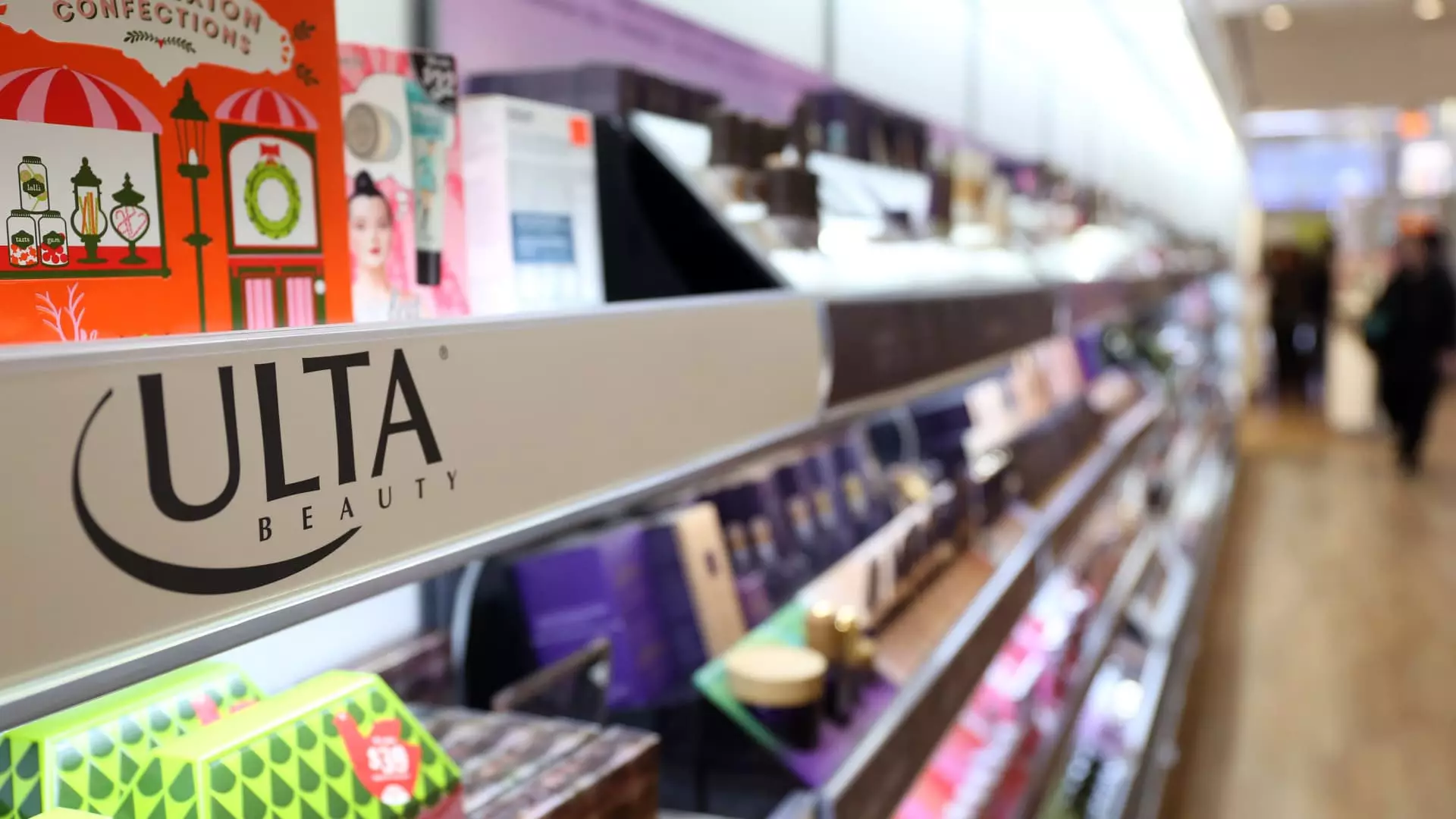On Thursday, Ulta Beauty reported financial results for its third quarter that surpassed Wall Street expectations, relieving concerns regarding the competitive landscape and a possible downturn in consumer interest for makeup and skincare products. With a revised full-year outlook, Ulta has projected an increase in net sales to the range of $11.1 billion to $11.2 billion, a slight improvement from the earlier estimate of $11 billion to $11.2 billion. This uplift signals a notable confidence in the company’s performance despite underlying challenges, especially during the critical holiday shopping season.
Notably, Ulta has also adjusted its earnings per share forecast to between $23.20 and $23.75, up from a previous estimate of $22.60 to $23.50. Still, it projects that comparable sales for the year may experience a mild contraction of about 1% or remain flat. This metric, which accounts for sales from stores operational for at least 14 months and online sales, reveals a cautious sentiment as the retailer anticipates a decline in comparable sales during the holiday quarter, albeit within the low single-digit range.
In a press release, CEO Dave Kimbell expressed a sense of pride in the strides Ulta has made, stating he feels “encouraged by early signs” that their strategies aimed at solidifying market presence and enhancing performance are beginning to yield results. This optimistic assertion stands in contrast to the apprehensions voiced earlier this year, where Kimbell cautioned investors about a potential downturn in beauty product demand. So what has changed?
The third quarter witnessed a net income of $242.2 million, translating to earnings of $5.14 per share, compared to $249.5 million or $5.07 per share during the same quarter last year. Revenue also showed a positive trend, hitting $2.53 billion against expectations of $2.50 billion. The improvement in comparable sales, which rose by 0.6% year-over-year, was attributed to slight increases in customer traffic and average transaction values.
Despite these gains, the backdrop of heightened competition and altering consumer behavior continues to loom large over Ulta. The beauty sector has generally experienced resilience; even in the face of rising inflation and customers cutting back on non-essential purchases, brands have grown in popularity. Retail giants such as Target, Walmart, Kohl’s, and Macy’s have responded by broadening their own beauty offerings.
Yet, Ulta’s journey has not been without its hurdles. Following a disappointing Q2, where it missed earnings estimates and revised its full-year projections downward for the first time in four years, the brand has had to reassess its strategies and operations. This tightening market space has resulted in Ulta shares declining by around 19% year-to-date. This downturn starkly contrasts with the S&P 500’s roughly 28% increase during the same period.
On a more positive note, Kimbell has highlighted critical initiatives that have bolstered Ulta’s recent performance. The company has leveraged product exclusivity, evidenced by its collaboration with Universal’s “Wicked,” providing customers with unique makeup offerings that generate buzz and drive store traffic. Furthermore, digital innovations such as enhanced virtual try-on capabilities and comprehensive buying guides have modernized the shopping experience for customers seeking convenience and creativity.
In-store events, such as hands-on workshops led by Ulta’s in-house stylists, have also proven effective in retaining customer interest and loyalty. These workshops not only accommodate consumer learning but also create unique customer interactions that are often lacking in e-commerce experiences.
As the all-important holiday season approaches, Kimbell reassured investors that Ulta is fully prepared, even while acknowledging the pressures that the compressed shopping season presents, notably the five fewer days between Thanksgiving and Christmas this year. Kimbell referenced consumer concerns influencing spending habits; a trend that has created an increased focus on value—something that Ulta appears to recognize and is strategically adjusting to meet.
Both Kimbell and CFO Paula Oyibo emphasized a cautious approach, reflecting the company’s ongoing assessment of economic conditions and consumer sentiment. This careful planning could significantly influence Ulta’s performance as shoppers deliberate over their holiday purchases amidst a changing financial landscape.
While Ulta Beauty faces a myriad of challenges including fierce competition and evolving consumer behavior, its strategic pivots and optimistic outlook may just enable it to weather the storm successfully.


Leave a Reply